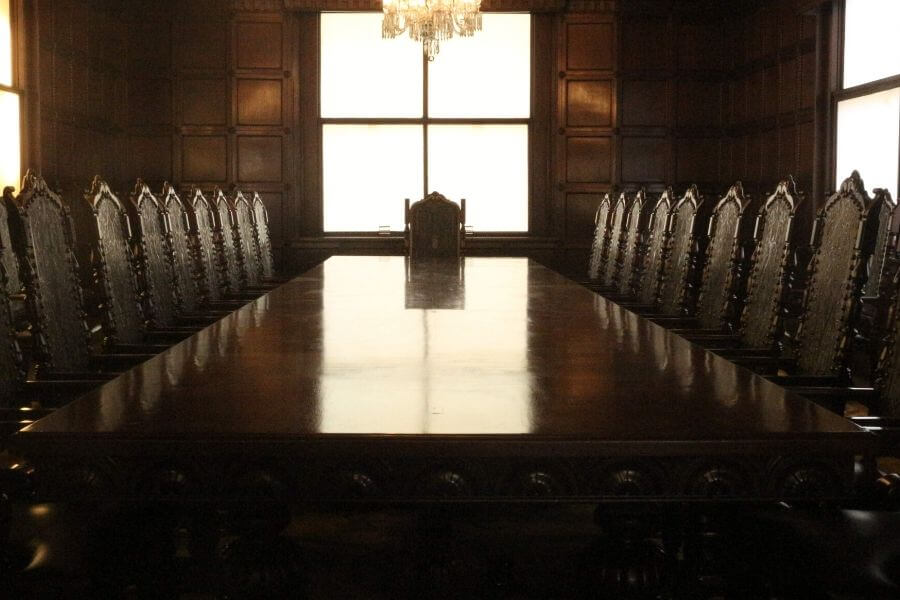
The Beijing Arbitration Commission Arbitration Rules implemented on 1st Sept. 2019 clearly divide the arbitration fees into the arbitrator’s fees and the administration fees, which marks the first attempt of China’s arbitration institutions in arbitration fees reform. This ground-breaking practice is conducive to improving the enthusiasm of arbitrators, as well as showing respect to their value and expertise.
I. Background
“The arbitration is only as good as its arbitrators” is a frequently used maxim in the international arbitration circle. In arbitration, arbitrators are the actual adjudicator of disputes. However, the remuneration for arbitrators is generally low in China. For a long time in the past, the common practice in China is that the arbitration fees are charged by the institutions, while few rules regulate the remuneration to be shared by the arbitrators, the very key players in arbitration. To this end, some scholars have raised a question with sarcasm: Does an arbitrator provide services for the parties or for the arbitration institution? [1]
Since 1st Sept. 2019, the newly revised Beijing Arbitration Commission Arbitration Rules (hereinafter referred to as the “2019 Rules”) by Beijing Arbitration Commission’s (hereinafter referred to as the “BAC”) and the annex thereto on arbitration fees have been put into effect. The 2019 Rules has made a significant adjustment to the previous arbitration fees charging rates, which has aroused many discussions. So, what are the differences between the charging rates before and after the reform by the BAC? What is the significance of the reform?
II. BAC’s previous charging rates
According to the BAC’s previous arbitration rules, the arbitration charging rates shall be governed by Annex I of the Arbitration Rules; for the fees of international arbitration (referring to the relevant provisions of international arbitration for Hong Kong, Macao, and Taiwan related arbitration), the parties may agree to apply Annex II of the Arbitration Rules.
The charging items and standards specified in Annex I and Annex II are different. According to Annex I, the arbitration fee, including case acceptance fee and case handling fee, is calculated on the basis of the amount in controversy. According to Annex II, the arbitration fee includes case filing fees, case management fees, and arbitrators’ fees. Among them, case filing fee and case management fee shall be calculated on the basis of the amount in controversy; arbitrators’ fee may be calculated on the basis of the hourly rate agreed by the parties, or on the basis of the amount in controversy if the parties do not agree on the hourly rate. In practice, it is rare for Chinese parties to agree to apply Annex II, so Annex I actually serves as the general standard for the BAC to charge arbitration fees. In other words, in almost all cases, arbitrators’ fees will not be calculated separately, but will be determined and paid to the arbitrators by the arbitration institution.
From the currently limited disclosure of data, the direct consequence of the charging rates mentioned above is that the total remuneration paid to arbitrators by Chinese arbitration institutions at case closure is mostly less than 40% of the total arbitration fees. In contrast, the total remuneration for arbitrators in other countries usually accounts for about 80% of the arbitration fees charged by the arbitration institutions (in other words, the administration fees of the arbitration institutions account for only about 20%). This means that the administration fees of Chinese arbitration institutions account for the main part thereof, which inevitably produces a peculiar phenomenon that the remuneration for arbitrators is comparatively low. This will reduce the attraction of Chinese arbitration institutions to arbitrators, and ultimately to the clients.
III. BAC’s revised charging rates
The 2019 Rules no longer makes any distinction between domestic arbitration fees and international arbitration fees, but stipulates that all cases shall be subject to Annex I “Beijing Arbitration Commission Schedule of Arbitration Fees” thereto, and the charging items shall be uniformly divided into arbitrators’ fees and administration fees. According to the 2019 Rules, the fees charged by the arbitration institution and the remuneration charged by the arbitrators belong to two different types of fees. This shows that the remuneration for the arbitrators is paid by the parties, for whom the arbitrators provide arbitration services. In fact, the arbitrators and the parties have established a contractual relationship on the provision of arbitration services. More precisely, the administration fees are calculated on the basis of the amount in controversy; the arbitrators’ fees can be calculated on the basis of the hourly rate agreed by the parties, or on the basis of the amount in controversy if the parties do not agree on the hourly rate.
In addition, Annex I of the 2019 Rules stipulates that the BAC may, taking into account the specific circumstances of the case, charge an extra percentage of arbitrator’s fees and administration fees calculated as per the Schedule. Such circumstances shall include but not be limited to cases where there are two or more Claimants or Respondents, the arbitration involves multiple contracts, the parties agree on two or more languages as the languages of the arbitration, and any other special circumstances.
According to the 2019 Rules, the reform of the arbitration fee system will directly produce the following effects:
A. from the perspective of arbitrators, in the 2019 Rules, the items of arbitration fees are changed into arbitrator’s fees and administration fees, which increases the minimum remuneration for arbitrators and the proportion of arbitrator’s fees in the total arbitration fees at the same time. This will encourage arbitrators to invest more energy in arbitration. For example, in the case with CNY 5 million in controversy, arbitrator’s fees account for 70% of the arbitration fees; in the case with CNY 10 million in controversy, arbitrator’s fees account for 63% of the arbitration fees.
B. from the perspective of the parties, the 2019 Rules set the upper and lower limits of the arbitration fees, that is, the minimum fee is increased from the previous CNY 5,100 to the current CNY 17,000, and the total arbitration fees shall not exceed CNY 26,761,000. By setting the upper limit, it can effectively help the parties reasonably control the cost of dispute resolution.
C. from the perspective of the arbitration service quality, the 2019 Rules allows the parties to agree to calculate the remuneration for arbitrators at hourly rates, which conforms to international standards. This will help attract more excellent international arbitration professionals to serve as arbitrators in the BAC, and thus enhance the internationalization of China’s arbitration services.
D. from the perspective of equal pay for equal work, the 2019 Rules have moved away from the past practice (yet prevailing in most Chinese arbitration institutions) of setting different remuneration standards for Chinese and foreign arbitrators. Before that, the remuneration for foreign arbitrators was significantly higher than that of their Chinese counterparts, even though they had the same status in and contribution to the case. The BAC has thoroughly implemented the principle of equal pay for equal work in the 2019 Rules, that is, equal pay for equal work, and the remuneration for arbitrators shall not differ due to their differences in nationality and region.
IV. Comments and outstanding issues
As the first attempt of China’s arbitration institutions, the newly revised charging rates of the BAC are in line with the practice of international arbitration, and its pioneering spirit (just as that of “the first person to eat crab” in the title, an expression commonly used in China) is worthy of affirmation. The 2019 Rules have completely changed the practice of “arbitrators getting paid by arbitration institutions”, clarified the relationship between arbitration institutions and arbitrators on “money”, and specified that the remuneration for arbitrators directly comes from the parties concerned. According to the 2019 Rules, the parties know that which part of the fees they pay is dedicated to the remuneration for arbitrators, and the arbitration institution is only temporarily in charge of that part of the fees. This has explicitly confirmed the leading role of arbitrators and answered the question raised by scholars, that is, the arbitrators provide arbitration services for the parties who pay remuneration therefor.
However, there are still some outstanding issues in the 2019 Rules. For example, in order to dispel the concerns of the parties in China about hourly billing, can the BAC formulate more specific and reasonable billing and charging rules, quantify and disclose the work carried out by the arbitrators, and improve the rules on the parties’ objection to fees? Should detailed refund rules be established under special circumstances, such as where the parties reach an arbitration settlement agreement and withdraw the arbitration application? In the future arbitration practice, with the accumulation of experience, we believe that the BAC will continue to improve its charging rules, thus further enhancing the credibility of arbitration.
References:
[1] 2007年,在全国政协十届委员会第五次会议上,梁慧星等15名全国政协委员向大会提交了《关于纠正将“仲裁收费”作为“行政事业性收费”错误的提案》。
Photo by André Ravazzi(https://unsplash.com/@amravazzi) on Unsplash.
Contributors: Jian Zhang 张建







